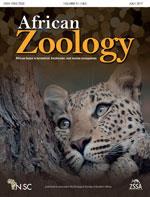Mammalian parental investment (i.e. care of descendant offspring) is largely biased towards maternal contributions due to the specific feeding needs of mammalian offspring; however, varying degrees of paternal investment have been reported in about 10% of all mammalian species. Within the order Carnivora, paternal contribution to rearing offspring is particularly high: an estimated 32% of all studied carnivore species exhibit direct paternal care. Despite the prominence of paternal investment in carnivores, the endocrine basis of this behaviour is not well understood. This review examines the current — highly constrained — state of knowledge about the endocrine basis of carnivore paternal investment. We attempt to link changes in androgen and glucocorticoid levels with variation in direct and indirect paternal care behaviour making specific predictions regarding the way forward. Well-studied species, such as bat-eared foxes (Otocyon megalotis), dwarf mongoose (Helogale parvula) and meerkats (Suricata suricatta), where social dynamics are relatively well understood, can act as ideal model systems through which we may further investigate the endocrine basis of paternal investment in carnivores.
How to translate text using browser tools
1 December 2016
From killer to carer: steroid hormones and paternal behaviour
Ruan de Bruin,
Andre Ganswindt,
Aliza le Roux
ACCESS THE FULL ARTICLE

African Zoology
Vol. 51 • No. 4
December 2016
Vol. 51 • No. 4
December 2016
Androgens
carnivore
glucocorticoids
paternal investment





